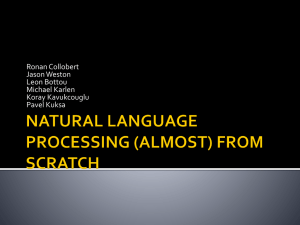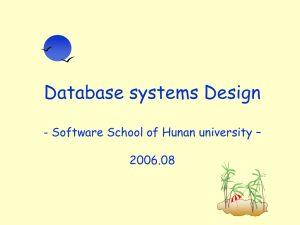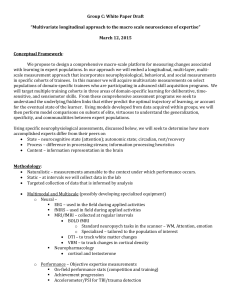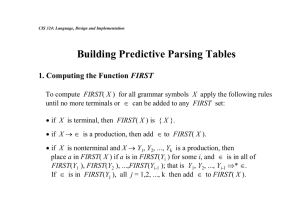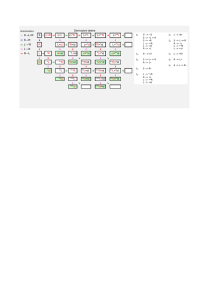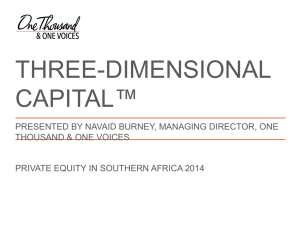Please, feel in you abstract title here
advertisement
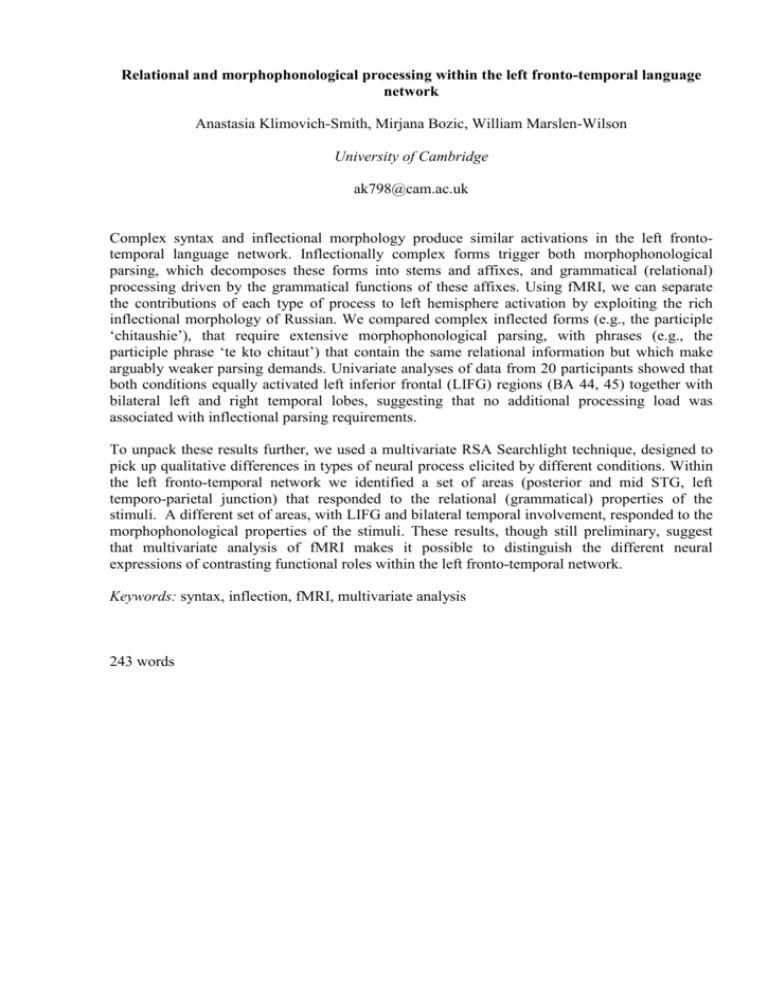
Relational and morphophonological processing within the left fronto-temporal language network Anastasia Klimovich-Smith, Mirjana Bozic, William Marslen-Wilson University of Cambridge ak798@cam.ac.uk Complex syntax and inflectional morphology produce similar activations in the left frontotemporal language network. Inflectionally complex forms trigger both morphophonological parsing, which decomposes these forms into stems and affixes, and grammatical (relational) processing driven by the grammatical functions of these affixes. Using fMRI, we can separate the contributions of each type of process to left hemisphere activation by exploiting the rich inflectional morphology of Russian. We compared complex inflected forms (e.g., the participle ‘chitaushie’), that require extensive morphophonological parsing, with phrases (e.g., the participle phrase ‘te kto chitaut’) that contain the same relational information but which make arguably weaker parsing demands. Univariate analyses of data from 20 participants showed that both conditions equally activated left inferior frontal (LIFG) regions (BA 44, 45) together with bilateral left and right temporal lobes, suggesting that no additional processing load was associated with inflectional parsing requirements. To unpack these results further, we used a multivariate RSA Searchlight technique, designed to pick up qualitative differences in types of neural process elicited by different conditions. Within the left fronto-temporal network we identified a set of areas (posterior and mid STG, left temporo-parietal junction) that responded to the relational (grammatical) properties of the stimuli. A different set of areas, with LIFG and bilateral temporal involvement, responded to the morphophonological properties of the stimuli. These results, though still preliminary, suggest that multivariate analysis of fMRI makes it possible to distinguish the different neural expressions of contrasting functional roles within the left fronto-temporal network. Keywords: syntax, inflection, fMRI, multivariate analysis 243 words
